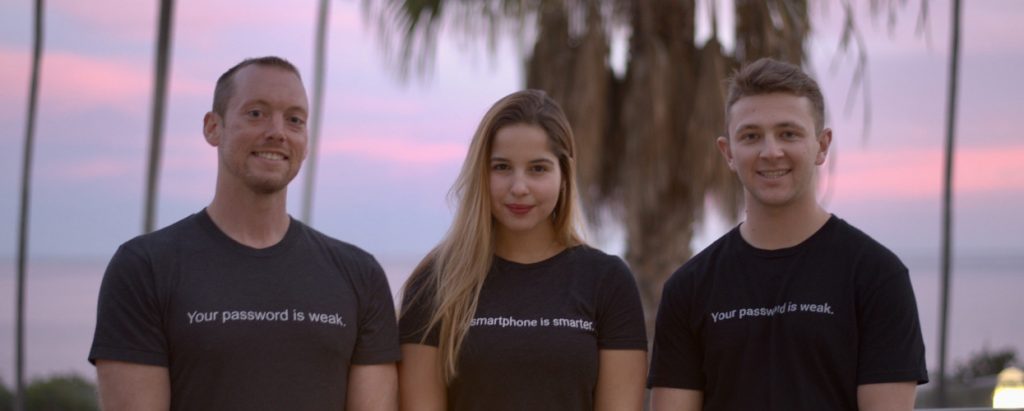Don’t touch and go: Allthenticate prepares offices and workers for safe returns
Businesses are searching for ways to reduce touchpoints in the wake of the coronavirus pandemic, and one Goleta cybersecurity firm has a touch-free technology that could answer the call.
UC Santa Barbara startup Allthenticate has netted $500,000 in venture capital to fund the rollout of cell phone software and smart door readers that allows access to digital and physical spaces. Meanwhile, the COVID-19 pandemic and high-profile hacks have generated renewed interest in security and tools that can help companies manage employee interactions.

“A lot of the design process kind of went into trying to think out every possibility that could arise or come up in any sort of installation environment,” said co-founder and CEO Chad Spensky. “So, at this point, I hope our door readers are very versatile.”
COVID-19 meant doubling down on product development while putting business expansion on hold. Where the company had previously focused on its software, which enables users to turn their phones into digital passkeys and replace electronic keys to enter buildings, hardware development required a whole new learning curve, said Chief Technology Officer Evan Blasband.
The pause turned out to be a blessing in disguise, allowing the company to focus on critical R&D rather than scaling out quickly. Moving forward, it plans a much more measured go-to-market strategy, Spensky said.
“We’re trying to hand-pick places that we think are interesting, and kind of testing different markets,” he said. “Coworking is going to operate very differently than a 300-person company … so we kind of are trying to feel those out and then get feedback to figure out what market we like the best and which market likes us the best.”
The team got its start when it took the top prize at the UCSB New Venture Competition in 2019, a venue that has launched high-growth firms including call intelligence company Invoca, food preservation firm Apeel Sciences and portable oxygen concentrator maker Inogen. In addition to the three founders, it has brought on three permanent employees since the pandemic began and expects to add two more in the coming year.
The COVID-19 pandemic has spurred new business growth for technologies that offer contact-free tools, said Steve Sereboff, a partner at Santa Barbara-based SoCalIP who has worked with Allthenticate since the New Venture Competition win.
“It’s expediting change that was already in the works,” he said. Technology like Allthenticate “that was sitting on the sidelines has suddenly become very, very desirable. Having a digital system has significant benefits for a business as it scales, and even for a small business like mine.”
Overall, startup investment has stayed strong for technologies that offer digital and contact-free alternatives, Sereboff said.
“There’s a ton of money sloshing around out there,” he said, with many investors cashing out and looking for new ventures, as well as significant government stimulus dollars.
The largest benefits will go to startups that had existing relationships prior to the pandemic, he said, with investors struggling to connect with new growth firms and conduct due diligence.
“A pre-existing relationship makes all the difference,” he said. “Anybody who was at a disadvantage before is probably at an even greater disadvantage now. Some of the systemic biases are probably getting exacerbated right now.”
Allthenticate declined to discuss the source of the investment, but said the funding gives the company around 14 months of runway.
Early conversations with local tech firms like FLIR and Apeel have led the team to add new capabilities like temperature checkpoints for employees. But with many offices closed to all but essential workers, rollouts have been slow.
The political and economic climate has also added hurdles, making it more difficult to connect with Chinese manufacturers and adding costs for components made in the U.S.
Despite the uncertain environment, the company has worked to keep its messaging light and focused on convenience.
“Most security companies sell fear and I never want to do that,” Spensky said. “We don’t want to brand ourselves as that. So we haven’t been using this as a marketing campaign.”
— Contact Marissa Nall at [email protected]











